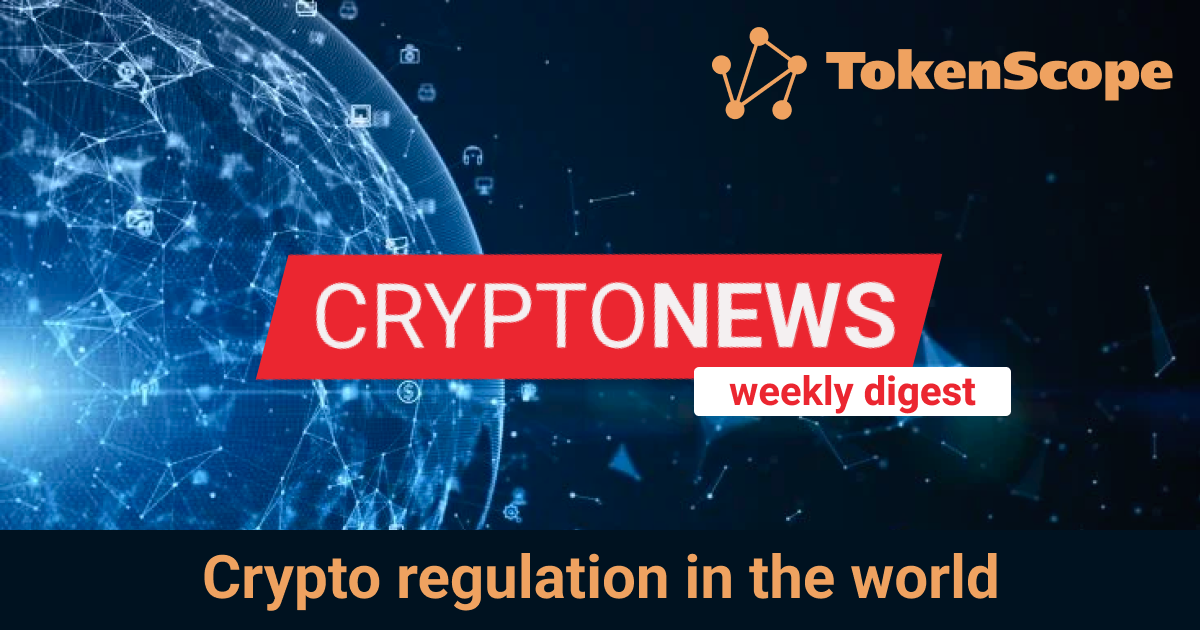
International scope
The United Nations Conference on Trade and Development (UNCTAD) believes that the risks and costs of cryptocurrencies outweigh benefit from their use.
The organization has released a series of policy briefs on the use of cryptocurrencies in emerging markets. The first of the three published papers have already been reviewed earlier by the TokenScope team.
UNCTAD urges authorities to take the following actions to curb the expansion of cryptocurrencies in developing countries:
- Ensure comprehensive financial regulation of cryptocurrencies through regulating crypto exchanges, digital wallets and decentralized finance, and banning regulated financial institutions from holding cryptocurrencies (including stablecoins) or offering related products to clients.
- Restrict advertisements related to cryptocurrencies, as for other high-risk financial assets.
- Provide a safe, reliable and affordable public payment system adapted to the digital era.
- Agree and implement global tax coordination regarding cryptocurrency tax treatments, regulation and information sharing.
- Redesign capital controls to take account of the decentralized, borderless and pseudonymous features of cryptocurrencies. The TokenScope team will prepare a detailed review of all published policy briefs as soon as possible.
UAE
The United Arab Emirates authorities introduced amendments to countries’ AML/CFT rules and obliged real estate agents to report authorities responsible for combating money laundering about transactions made in cryptocurrency settlements. According to the statement, published the Ministry of Economy, the initiative was adopted as part of a general strengthening measures aimed at combating money laundering.
We already noted that the UAE develops as a global cryptocurrency hub, and due to the emergence of cryptocurrency companies in the country, local real estate developers began to adopt payments in digital currency.
The new requirements apply to individuals and legal entities making transactions in excess of 55,000 dirhams (~$15,000). Brokers, agents and lawyers are now obliged to submit transactions reports to the UAE’s Financial Intelligence Unit.
Thailand
According to Bloomberg Thailand plans to amend Law on Digital Assets and strengthen control over transactions with cryptocurrencies and virtual assets service providers. The forthcoming bill that will be drafted by the SEC of Thailand is designed to expand the powers of Thai’s Central Bank as an industry’s watchdog. Under current regulations only SEC has exclusive powers to oversee the crypto industry.
This decision was possibly made due to the recent cessation of withdrawals by Zipmex, the largest local cryptocurrency exchange. Zipmex allowed users to withdraw some cryptocurrencies but later it applied for moratorium in Singapore.
Currently, the Central Bank of Thailand does not have the right to participate in the preparation of the regulatory framework for the cryptocurrency industry. So far, it can only issue notices to prevent consumers from using crypto as it is not a legal tender in the country. This draft bill gives the Central Bank these powers and provide greater protection to consumers.
Uzbekistan
We already mentioned that Uzbekistan completely legalized cryptocurrency mining, exempted miners from paying most taxes and set only two key rules for carrying out this business. Firstly, mining must be carried out exclusively using solar energy. Secondly, all mined cryptocurrency must be released on local licensed crypto exchanges. At the moment, only one exchange, UzNEX, is licensed to operate in Uzbekistan.
This week, probably in order to successfully fulfill the second condition, Uzbekistan completely closed access to unlicensed cryptocurrency exchanges. In accordance with country regulations all crypto exchanges must obtain a service provider license to operate in Uzbekistan. Unlicensed platforms use the personal data of residents of the country without taking into account the requirement to install servers on the territory of Uzbekistan. They also do not bear any legal responsibility for transactions with crypto assets and cannot guarantee the legitimacy of transactions.
We continue to highlight the news of the world of crypto regulation worldwide. Stay tuned for more news!